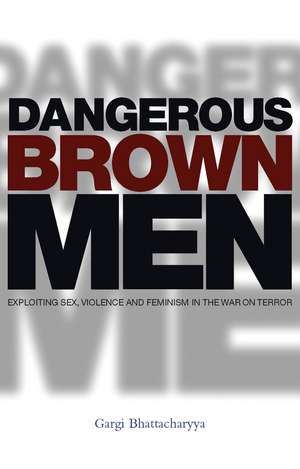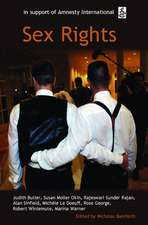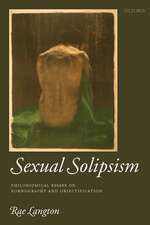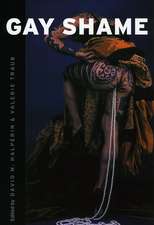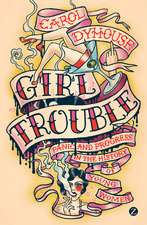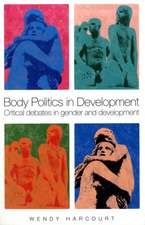Dangerous Brown Men: Exploiting Sex, Violence and Feminism in the 'War on Terror'
Autor Professor Gargi Bhattacharyyaen Limba Engleză Paperback – 30 iul 2008
Preț: 195.56 lei
Preț vechi: 228.76 lei
-15% Nou
Puncte Express: 293
Preț estimativ în valută:
37.43€ • 38.97$ • 31.63£
37.43€ • 38.97$ • 31.63£
Carte tipărită la comandă
Livrare economică 07-21 martie
Preluare comenzi: 021 569.72.76
Specificații
ISBN-13: 9781842778791
ISBN-10: 184277879X
Pagini: 176
Dimensiuni: 138 x 216 x 10 mm
Greutate: 0.23 kg
Editura: Bloomsbury Publishing
Colecția Zed Books
Locul publicării:London, United Kingdom
ISBN-10: 184277879X
Pagini: 176
Dimensiuni: 138 x 216 x 10 mm
Greutate: 0.23 kg
Editura: Bloomsbury Publishing
Colecția Zed Books
Locul publicării:London, United Kingdom
Caracteristici
Integrates debate in sexuality studies and race and ethnic studies with analysis of the key international events of our times
Notă biografică
Gargi Bhattacharyya lives and works in Birmingham. She teaches and researches issues of 'race' and racisms, sexuality and globalisation. Her books include Tales of Dark-skinned Women (1998); Race and Power with John Gabriel and Stephen Small (2001); Sexuality and Society (2002); Traffick, the illicit movement of people and things (2005).
Cuprins
Introduction: Dangerous Brown Men? 1. The Misuse of Feminism in Foreign Policy 2. Bodies, Fears and Rights 3. State Racism and Muslim men as a Racialised Threat 4. Sexuality in Torture Conclusion: The Spectacle of Violence
Recenzii
This is a thought provoking book. It challenges common assumptions about the global social and political environment we face, both in the west and at a global level. In doing so it gives voice to a critical perspective that needs to be heard and critically discussed.
This is an important and nuanced discussion of the `war on terror' as a cultural project which deploys sexualized racisms as its method. We are asked to stand against the rhetoric of transnational security and instead build alternative global publics to reject the `open secrets' that make us unwilling actors in this horrific war.
This is an important and nuanced discussion of the `war on terror' as a cultural project which deploys sexualized racisms as its method. We are asked to stand against the rhetoric of transnational security and instead build alternative global publics to reject the `open secrets' that make us unwilling actors in this horrific war.
